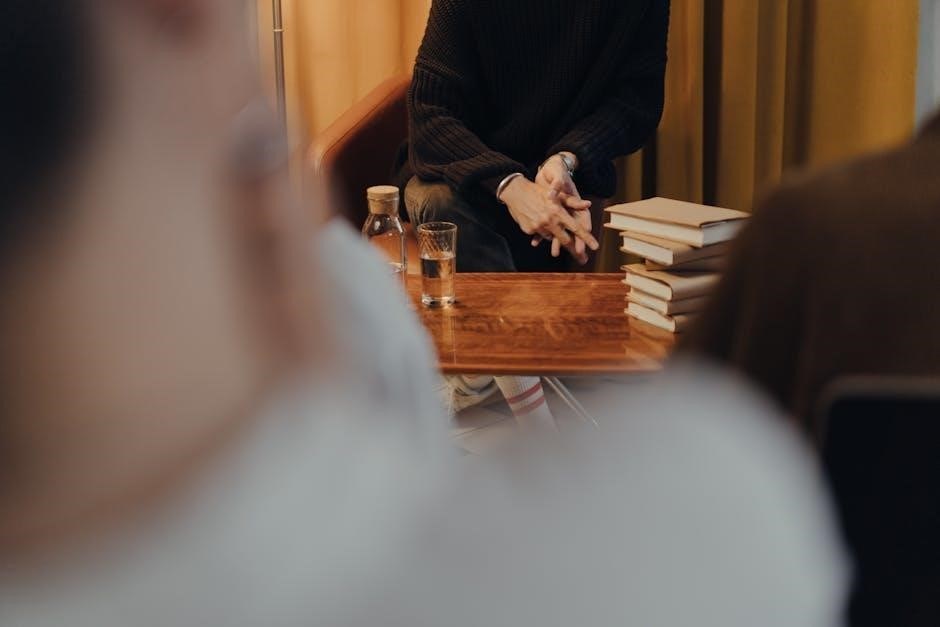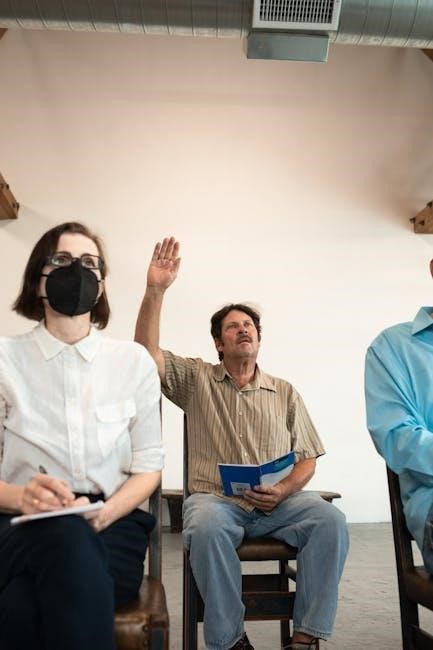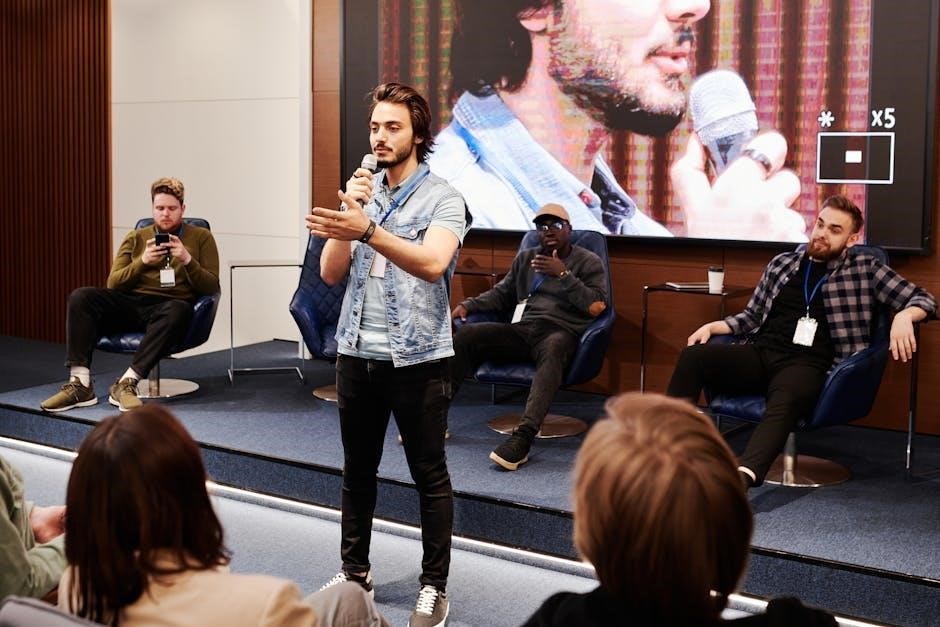
-
By:
- jayson
- No comment
presidential trivia questions and answers pdf
Presidential trivia offers a fascinating glimpse into U.S. history‚ revealing intriguing facts about leaders‚ their decisions‚ and unique experiences. Explore engaging questions and answers that highlight the diverse and often surprising stories of America’s presidents‚ making history both educational and entertaining.
Overview of Presidential Trivia Questions
Presidential trivia questions offer a captivating way to explore the lives and legacies of U.S. presidents‚ covering a wide range of topics from historical events to personal quirks. These questions often delve into significant milestones‚ such as the first president to enter a war zone without active U.S. military presence‚ or the president who introduced television debates. They also highlight unusual facts‚ like presidents who played musical instruments or kept exotic pets in the White House. Designed to be both educational and entertaining‚ presidential trivia encourages learners to engage with history in a fun and interactive manner; By testing knowledge of lesser-known details‚ these questions spark curiosity and foster a deeper understanding of America’s leadership history.
Importance of Trivia in Historical Education
Presidential trivia serves as a dynamic tool in historical education‚ making complex historical events and figures accessible and engaging. By focusing on intriguing facts and lesser-known anecdotes‚ trivia questions inspire curiosity and encourage learners to delve deeper into history. This approach not only enhances retention of factual information but also fosters critical thinking and contextual understanding. Trivia games and quizzes provide an interactive way to explore the lives of presidents‚ their policies‚ and their impact on the nation. Moreover‚ they bridge the gap between formal education and casual learning‚ appealing to a wide audience. In this way‚ presidential trivia becomes a valuable resource for both students and enthusiasts‚ promoting a lifelong interest in American history and its leaders.

Historical Firsts in the Presidency
Discover groundbreaking moments in U.S. history‚ such as the first president to enter a war zone without active U.S. military presence‚ shaping the nation’s leadership legacy.
First President to Enter a War Zone Without Active U.S. Military Presence
The first sitting U.S. president to enter a war zone without active American military presence was Jimmy Carter. This historic event occurred during his presidency‚ showcasing his commitment to diplomacy and peace efforts. Carter’s visit highlighted the risks and challenges faced by leaders in such unconventional settings. His actions demonstrated a unique approach to foreign policy‚ emphasizing personal engagement over military presence. This moment remains a significant milestone in presidential history‚ reflecting the evolving role of the U.S. in global conflicts. It also underscores the bravery and strategic thinking required for such decisions‚ making it a notable topic in presidential trivia.
First President to Use Television for a Political Debate
Richard Nixon holds the distinction of being the first president to use television for a political debate. During his 1960 presidential campaign‚ Nixon participated in the historic debate against John F. Kennedy‚ marking a pivotal moment in political history. This debate was the first to be televised‚ allowing millions of Americans to witness the candidates’ performances firsthand. Nixon’s decision to engage in this format underscored the growing influence of television in politics. The debate is often credited with shaping public perception‚ as Kennedy’s on-screen presence was seen as more charismatic. This event highlighted the importance of visual media in modern campaigns and set a precedent for future political discourse.

Famous Presidential Quotes and Their Context
Discover iconic presidential quotes like Lincoln’s “Government of the people‚ by the people” and Reagan’s “Mr. Gorbachev‚ tear down this wall!”‚ each rooted in pivotal historical moments.
These quotes reveal leadership ideals and defining eras in American history‚ offering insights into their visions and challenges faced during their tenures.
“The Only Thing We Have to Fear is Fear Itself” ー Franklin D. Roosevelt
Delivered during FDR’s first inaugural address in 1933‚ this quote addressed a nation in crisis amid the Great Depression. Roosevelt aimed to instill hope and resilience‚ urging Americans to confront challenges with courage. The phrase became a cornerstone of his leadership philosophy‚ emphasizing collective strength over individual fear. It remains a powerful symbol of presidential rhetoric‚ reflecting his commitment to guiding the country through its darkest hour. This iconic statement continues to inspire‚ embodying the essence of FDR’s visionary leadership and unwavering optimism.
“Ask Not What Your Country Can Do for You” ⏤ John F. Kennedy
Delivered by John F. Kennedy during his 1961 inaugural address‚ this iconic phrase encapsulates his vision of civic responsibility and national unity. It challenges Americans to prioritize service to their country over personal gain. The quote has become synonymous with JFK’s presidency and is often cited as a call to action for public service. Its profound impact lies in its ability to inspire collective effort toward the greater good. This statement reflects Kennedy’s belief in the power of individual contributions to achieve national progress. It remains a cornerstone of American political rhetoric‚ symbolizing the ideals of sacrifice and patriotism that defined his leadership. The phrase continues to resonate‚ motivating future generations to engage in meaningful ways with their communities and nation.

Presidents’ Personal Lives and Habits
Presidents’ personal lives and habits reveal intriguing insights into their humanity‚ showcasing unique hobbies‚ quirks‚ and routines that define their character beyond the Oval Office.
Presidents Who Played Musical Instruments
Music has been a unique hobby for several U.S. presidents‚ showcasing their diverse talents. Bill Clinton famously played the saxophone‚ while Richard Nixon was a skilled pianist and composer. Woodrow Wilson‚ a classically trained musician‚ often played the violin to relax. These musical pursuits reveal the multifaceted personalities of America’s leaders‚ highlighting their lives beyond politics.
- Bill Clinton: Saxophone
- Richard Nixon: Piano and composition
- Woodrow Wilson: Violin
Such hobbies humanize presidents‚ illustrating their creativity and passions outside the Oval Office.
Unusual Pets in the White House
Over the years‚ U.S. presidents have brought unique and unexpected pets to the White House. Quincy Adams famously kept an alligator in the East Room‚ while Theodore Roosevelt had a pet badger named Josiah. Calvin Coolidge’s menagerie included a raccoon named Rebecca‚ intended for Thanksgiving dinner but adopted as a pet instead. William Henry Harrison had a goat‚ and Abraham Lincoln’s children kept a rabbit. These unusual pets reflect the diverse personalities and interests of America’s leaders‚ adding charm to White House history.
- Quincy Adams: Alligator
- Theodore Roosevelt: Badger
- Calvin Coolidge: Raccoon
- William Henry Harrison: Goat
- Abraham Lincoln: Rabbit
Such unconventional companions highlight the human side of presidential life.
The Presidential Election Process
The Presidential Election Process involves primaries‚ debates‚ and the Electoral College. Candidates earn votes through state contests‚ with the winner needing 270 electoral votes for victory.
The First Televised Presidential Debate
The first televised presidential debate took place in 1960 between John F. Kennedy and Richard Nixon. This historic event marked a turning point in political communication‚ as visual impressions became crucial. Kennedy’s confident on-screen presence contrasted with Nixon’s nervous demeanor‚ influencing public perception. The debate was broadcast on September 26‚ 1960‚ from Chicago‚ with millions watching. It emphasized the importance of television in shaping voter opinions‚ setting a precedent for future campaigns. This milestone debate is often credited with helping Kennedy secure the presidency‚ proving that visual media could significantly impact election outcomes.
The Youngest Elected President
John F. Kennedy holds the distinction of being the youngest elected president in U.S. history. At just 43 years old‚ he won the 1960 presidential election‚ defeating Richard Nixon. Kennedy’s youth brought a fresh perspective to the White House‚ and his charisma resonated with the American public. His inauguration marked a new era of political enthusiasm‚ particularly among younger generations. Despite his tragic assassination in 1963‚ Kennedy’s legacy endures‚ emphasizing the potential of youthful leadership in shaping the nation’s future. His story remains a significant topic in presidential trivia‚ highlighting the impact of age and energy on political leadership.

Scandals and Controversies
Presidential scandals have shaped U.S. history‚ revealing ethical dilemmas and leadership challenges. They highlight the human side of power‚ impacting public trust and political legacies significantly.
The Watergate Scandal
The Watergate scandal‚ occurring during Richard Nixon’s presidency‚ involved a break-in at the Democratic National Committee headquarters and subsequent cover-up. This political scandal led to Nixon’s resignation‚ marking a significant crisis in U.S. governance. Investigations revealed widespread corruption‚ including illegal activities authorized by the Nixon administration. The scandal underscored the importance of accountability and transparency in government‚ reshaping public trust in political leadership.
Presidents Who Resigned
Only one U.S. president has resigned from office: Richard Nixon. His resignation on August 9‚ 1974‚ was due to the Watergate scandal‚ which involved illegal activities and a cover-up by his administration. Facing almost certain impeachment and removal from office‚ Nixon stepped down‚ marking a historic moment in American politics. His resignation underscored the constitutional checks on presidential power and demonstrated the accountability expected of leaders. This event remains a significant topic in presidential trivia‚ highlighting the rare occurrence of a president leaving office voluntarily before the end of their term.